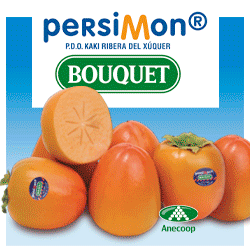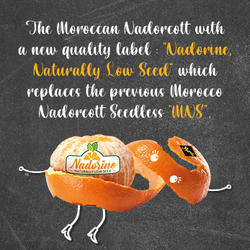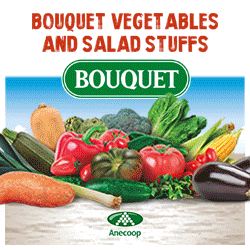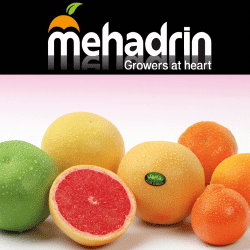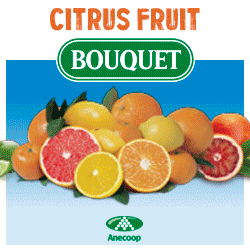Italy citrus Campaign 2013-14
- Publié le 7/01/2015 - Elaboré par Jatosti Armando
- Gratuit
The recent ISTAT data reveal that Italian citrus campaign 2013-2014 was marked as compared to 2012-13 season with a noticeable increase of orange production (from 1.751.373 to 1.862.209 tons) and Clementine (from 550.500 to 722.465 tons). Only the levels of lemons (415.392 tons) and tangerines (154.536 tons) remained stable.
Infos
- Produit(s) : Agrumes , Orange
- Rubrique / Thématique : Analyses économiques
- Pays : Italie
- Mot(s) clé(s) : Transformation
Ouvrir/Fermer En lien direct avec l'article
Italian citrus 2013-14 exports did not exceed 196.000 tons versus 220.500 tons of previous campaign. Citrus imports reached 194.359 tons, whereas the previous volumes reached 281.432 tons.
The following table presents the estimates of processed citrus volumes
It should be underlined that the processing industry is taking an increasingly determinant role in the citrus sector. In fact, in addition to the traditional function of rebalance aimed at relieving the surplus of the production, the citrus processing industry consolidated its development showing a strong tendency towards the introduction of new technologies. This occurs in the context of increased diversification of products placed in the channels of commerce.The forecast of 2014-15 campaign promises to be favourable given the good weather conditions. The lower production level will be marked by an improvement in the quality.
As for the commercial aspect the Italian companies are seriously worried about the impact of the Russian embargo on citrus exports which are considered a diversification product traditionally placed on that market versus European and also national consumption areas.
- The processing policy
The main economic measures in force are included in the CAP reform for period 2014-2020 which was approved by the European Parliament on 23rd November 2013. These regulations did not introduce any significant modifications to the previous regime. But they did introduce cuts to the budget of the European agriculture by reducing funding to 371 billion Euros (- 13%) and assigning 271 billion to direct aid and 95 billion to rural development policy.
The old system of financial compensation which was in force in the 60s remains outgrown and the principle is confirmed that the financial resources of the EU for processing companies are granted to the producers' organizations (POs). The groups of producers (GPs) formed by the initiative of the farmers will be able to obtain – for a transitional period - direct financial support to acquire the status of a producer organization (POs).
On the basis of the proposals made by the European Commission it will also be possible to increase the subsidy from 61 million in the 2013 to 220 million in 2020. This aid would be dedicated for the reform of the policy on information and promotion of agricultural products . It would be extendible to processed food products within the European quality system. It must be stressed that the EU enhances the implementation of interprofessional initiatives. In Italy it is underlined that there are economic benefits from signing agreements between the production, industrial processing and distribution apparatus, particularly with regard to the supermarkets.
Internally, there exists a clear need of great united commitment to draw a plan for a processing policy aimed at increasing the competitiveness of Italian processing companies. These expectations of sector organic programming have increased considerably thus greatly weakening the extent of the actions taken by the main institutions responsible for the valorisation of the sector of processed citrus fruit. This sector reaches high economic potential engaging more than 90 companies of various dimensions located mainly in Sicilia and Calabria. In these circumstances an Association of Italian Processors has drawn its draft constitution and it would adhere to the Italian Section of Comité de Liaison de l’Agrumiculture Méditerranéenne – C.L.A.M. The establishment of this Association has among its main aims the constant monitoring of production and commercial trends with particular interest in exports. This approach would allow for appropriate economic and financial decisions to be applied to the sector. It would also include in the discussions the topics to be examined by the appropriate Committees in the framework of the activities of CLAM. Among the main tasks that the Association aims to achieve is the goal to establish permanent relations with foreign industrial economies , with particular reference to those of the Mediterranean countries .
- The Problems of the citrus market
Significant market concerns are caused by an increasing spread of contaminants present in products made on the basis of citrus, especially in beverages prepared with the essence of lemons and in those which require the use of Bergamotto for beauty products and fragrances. Their expansion is favoured by the trade policies of multinational companies which are committed to using artificial substances and thus reducing prices. This comes with detrimental effects on the financial statements of the Italian businesses, which use natural raw materials, in full compliance with the standards of quality and food safety.
That same tactic is used by the same multinational companies with the trade of other products (pasta, cacao) and also of the citrus juices which in Italy are subject to intensive debates in the parliament. The EU remarks required to fix the minimum quantity at 12%. But the Deputy’s Chamber Commission for Agriculture resolved, in advisory, on 11 June 2014 to raise to 20% the minimum content of orange present in non-alcoholic drinks produced and sold in Italy. The regulations which contain this requirement must still be approved by the congress hall. The increase to the 20% level would bring substantial economic benefits to the Italian citrus giving businesses the chance to operate for each season 200 million kg of oranges besides ensuring the improved quality of the final product.
Also regarding food security, last season the citrus sector welcomed with satisfaction the European Commission’s decision to ban the entry of South African citrus. The issue was the citrus contamination with the fungus responsible for Black Spot (Guignardia citricarpa Kiely). Its introduction is a menace for the European citriculture. This decision denied free access of imports of these citrus into the cycle of industrial processing in Europe.



